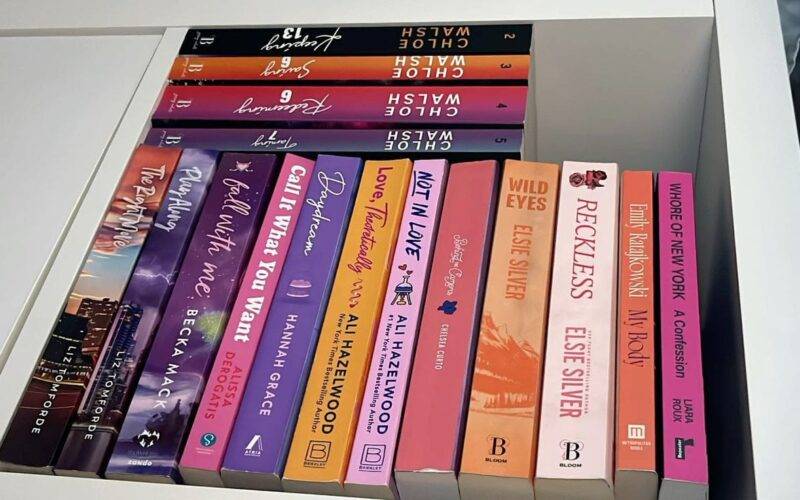On one side, there’s the thrill of exploring new creative heights; on the other, the fear of leaving behind the readers who made you successful in the first place. The good news? Genre-hopping isn’t an impossible act. With planning and a hint of courage, you really can transition between genres without leaving your audience behind.
First things first—if you’re thinking about a genre shift, consider whether a pen name might help. Contrary to popular belief, pen names aren’t about hiding and secret identities; they’re a practical marketing tactic. The goal? Segment your readers and make it easier for them to sort through your work.
Take Robert Jordan as an example. He’s synonymous with fantasy, thanks to The Wheel of Time. But he also wrote historical fiction under the name Reagan O’Neal and military history as Jim Rigney. Why? Because it’s a lot easier to market fantasy as “Robert Jordan” and historical fiction as “Reagan O’Neal” than to constantly clarify, “Yes, this is the same author, but no, this book doesn’t have dragons.” When someone picks up a Robert Jordan book, they know they’re getting fantasy. When they reach for Reagan O’Neal, it’s historical fiction all the way.
In traditional publishing, this approach makes perfect sense. Publishers thrive on predictability because it boosts profits. Sticking to a single genre builds a dedicated fanbase and simplifies marketing. That said, don’t let the business side of writing snuff out your creative freedom. If writing is your art form, by all means, explore as many genres as your imagination demands.
However, if you see writing as a business, genre-jumping comes with risks. A less predictable writer is harder to market, which can hurt sales. Readers often pick up a book expecting a specific type of story. Switching genres without warning can lead to disappointment, even if the new work is great. It’s not your fault, but it can be a tough tea to swallow.
So, how do you avoid alienating your readers? Start by being transparent. Share your genre-shifting plans openly on social media, in newsletters, or on your website. Give your audience a behind-the-scenes look at why you’re walking into new territory. Authenticity builds trust, and trust keeps readers loyal.
Also, find common ground between your genres. Say you’re moving from romance to fantasy. Highlight the romantic subplots in your new work. If you’re shifting from mystery to science fiction, emphasize the intrigue and problem-solving elements. By bridging the gap, you make the transition smoother for your audience.
Your writing voice is your superpower—the unique style and perspective that keep readers coming back. Whether you’re crafting a gothic horror or a lighthearted rom-com, let your voice shine through. Consistency in tone, humor, or emotional depth reassures readers that, no matter the genre, they’re still reading your work. Readers often stick around because of how you tell a story, not just what you’re telling. Whether you’re writing a cozy mystery or crafting a sci-fi epic, let your signature style shine. Consistency in voice reassures your audience they’re still reading your work, even if the packaging looks different.
For example, Stephen King is known as the king of horror, but he also penned The Green Mile and The Shawshank Redemption—two iconic stories that aren’t horror at all. What makes these works universally loved is King’s ability to capture raw human emotion. Readers follow him because they trust his storytelling, not just his genre.
If a full-length novel feels like too big a leap, dip your toes into the new genre with a short story, novella, or serialized piece. This approach not only helps you gauge reader interest but also allows you to refine your skills in unfamiliar territory. Think of it as a literary appetizer: a low-commitment way to introduce your audience to your new style.
For self-published authors, this strategy is particularly effective. Publish your short piece online or as an e-book, and use it to gauge feedback. If readers love it, you’ll have more confidence (and data) to back up your genre transition.
Switching genres doesn’t mean leaving your original fanbase. Balance your new projects with updates or releases in your established genre. For example, if you’re a romance author exploring thrillers, alternate between the two. This approach keeps your core audience engaged while gradually building a new fanbase.
Remember, you’re in this for the long haul. Your readers won’t mind waiting a bit longer for their favorite genre if they know it’s still on your radar.
Let’s not sugarcoat it: jumping genres can be a big gamble, especially in traditional publishing. Editors and marketing teams often specialize in specific genres, so when you switch, you’re starting over in many ways. The people who championed your first book might not be the same team working on your second, which can lead to a less enthusiastic push for your new release.
In self-publishing, the challenges are different but just as daunting. Each genre comes with its own crowded market. When you switch, you’re competing with thousands of books already dominating that space. Your crossover readers—the ones who love both your old and new genres—might be your saving grace, but you’ll need to work hard to attract new fans in your chosen niche.
The solution? Build momentum in your current genre before making the leap. Establish a strong reputation, so when you do switch, you’re bringing credibility with you. Over time, as your body of work grows, readers will trust you enough to follow wherever your creativity leads.
Gaiman’s portfolio is a genre buffet. From American Gods to Coraline to a Duran Duran biography, he’s proof that a strong voice and storytelling chops can transcend genres. Sylvia Plath, Known for her poetry, Plath also wrote fiction (The Bell Jar) and non-fiction, showing that genre boundaries are meant to be crossed.
A master of novels, short stories, and essays, Hemingway’s versatility didn’t dilute his literary impact.
The common thread? These authors built loyal audiences by consistently delivering quality work, regardless of genre.
Frame your genre shift as an adventure for your readers. Use newsletters and social media to hype your new project, sharing insights, challenges, and sneak peeks. For example, if you’re a fantasy writer venturing into crime fiction, you might send an email. Make the transition feel like a shared journey, not a departure. Genres might differ, but themes like love or hurt are universal. Highlight the elements in your new genre that overlap with your previous work. If you wrote romance but are moving to fantasy, focus on the relationships in your new world. This gives your audience a familiar hold while exploring new territory.
At the end of the day, the most important thing is to keep writing. Don’t let fears grip your creativity. Remember, every book you write is a step forward, even if it’s in a new direction.
Yes, transitioning genres might mean starting over in some ways, but it also means growing as a writer. Your audience will appreciate your passion and authenticity, even if it takes time for them to adjust.




